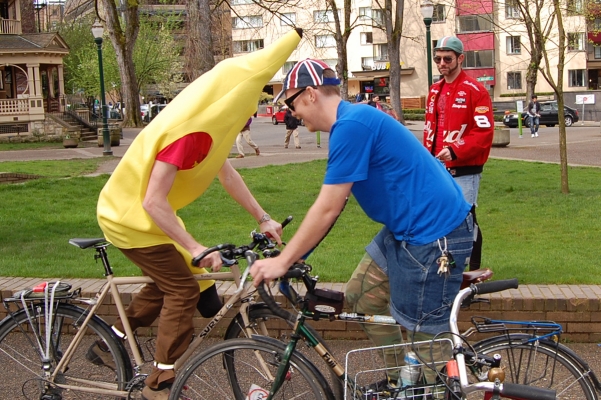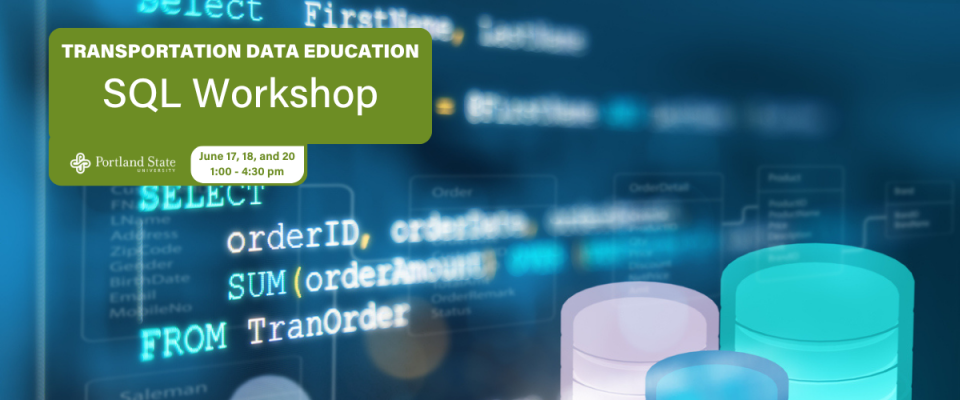Students in Transportation Engineering and Planning, the OTREC-funded transportation student group at Portland State University, held its biggest-ever Urban Olympics, the annual celebration of Portland’s quirks and oddities. The 2012 games, held in April, featured participation from planning, engineering and public health departments.
Teams competed in games such as Urban NASCAR, which included slow-biking and gummy worm-eating components, and the noncopyright-infringing “Astonishing Rush” scavenger hunt. The first-year master of urban and regional planning, or MURP, students took the participation award, with 16 competitors, while the best department award went to the second-year MURPs.
The best team award went to Team Jellis, composed of Jamie Jones and Scotty Ellis. More awards are at the STEP website.
Photos are after the jump.
Photos:



.bmp) the Institute of Transportation Engineers and Students in Transportation Engineering, she would like...
the Institute of Transportation Engineers and Students in Transportation Engineering, she would like...